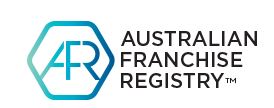How Much is the Average Australian Mortgage Outpacing Salaries?
Everybody knows that Australian house prices have increased dramatically over the last year or so. Combine this with sluggish wage growth, and it’s no wonder many Australians are struggling to save enough money for a deposit.
It’s not all doom and gloom however! In this article we will not only explore how much the average Australian mortgage is outpacing the median Australian salary, but we’ll also take a look at some of the government grants available that are designed to help eligible individuals enter the property market sooner.
How much is the average Australian mortgage outpacing your salary?
We pulled some data from the Australian Bureau of Statistics to answer this question and by comparing the yearly growth in national wages (wage price index) with the growth of residential property prices, we get an average yearly growth of 2.3% for national wages and 6.4% for residential property prices.
This means that over the last 10 years, Australian house prices have on average, outpaced national wages by just over three times.
But what about in the last couple of years? From December 2020 to December 2021, we saw residential property prices soar by 23.7%. To put things in perspective, the wage price index (WPI) rose by 2.3% for the same period.
This means, property prices were outpacing the wage price index by 930%, or 9.3 times. Now, unless you were able to make 930% more income during this period, many Australians would understandably feel disheartened about their chances of saving for a home loan deposit and purchasing property.

Source: Australian Bureau of Statistics | WPI, Residential Property Prices, CPI
But what is that grey line you ask? That’s the consumer price index (CPI), also known as inflation. For most of the last 10 years, it’s been able to stay just under the WPI, but since December of 2020, it looks like inflation has also been outpacing the wage price index.
But the good news is there are options available to help home buyers with saving for a deposit and entering the property market sooner. We will go over these later on.
How long would it take for the average Australian to save for a deposit?
This is a big question with a lot to unpack, so let’s jump right in. To understand this, we need to find out the median Australian yearly income. If you’ve read our recent blog about the impact having children can have on your borrowing capacity, you’ll know that this figure is currently sitting at $51,389, or $43,193 after tax.
Knowing this, now we need to find out what the average mortgage size is in Australia. According to the ABS, the national average mortgage size as of January 2022 is $620,315. This is an 18% increase from the previous year when the average national mortgage size was sitting at $511,280.

Source: Australian Bureau of Statistics
The last piece of information we need is how much the average Australian is saving per month. According to a recent report from Canstar, it was found that the majority of single income earners save between 0 and 10% of their after-tax income each month.
Now that we have all the pieces of the puzzle, we can make a calculated judgement as to how long it may take the average single Australian to save for a deposit – and the answer may or may not surprise you.
To save for a 20% deposit, it would take the average Australian 28.72 years.
Keep in mind, most people saving for a home loan are not doing it alone. So, for a couple earning a joint income, this could potentially shave off half of that time. However, 14.36 years is still a significant amount of time.
But did you know that you don’t necessarily need to save a 20% deposit to purchase a home? There are government grants and schemes available to help eligible Australian home buyers with entering the property market sooner. Here are some of the options.
First home buyers
We all know that it can be difficult for first home buyers to enter the property market. So here are three options you may be eligible for, to help you get your foot in the door as a first home buyer.
First Home Owners Grant (FHOG) – Depending on which state or territory you live in, you may be eligible for the First Home Owners Grant. If you are eligible, you may receive $10,000-20,000 (depending on your state) when you buy or build your first home. Click the links below to find out more about this grant in your state or territory.
First Home Loan Deposit Scheme – Usually, first home buyers with less than a 20% deposit need to pay lenders mortgage insurance. Under the First Home Loan Deposit Scheme, if you are eligible, you may only need to save as little as 5%. To learn more, click here.
First Home Super Saver Scheme (FHSS) – This scheme can be a great option for first home buyers trying to save for their deposit. It allows you to save for your first home inside your superannuation fund. Doing this can help you to save faster, due to the concessional tax treatment of superannuation. As part of the 2022-23 federal budget, starting from the 1st of July 2022, the maximum amount of voluntary contributions that can be released under the FHSS Scheme will be increased from $30,000 to $50,000. To learn more about this scheme, click here.
For everybody else
Have you already purchased a home? Looking to buy a new property? Luckily there are a couple of government schemes available to help eligible individuals purchase property sooner.
New Regional Home Guarantee – As part of the 2022-23 federal budget, the Australian government has announced a new Regional Home Guarantee Scheme for those living in regional areas. It has been reported that this new scheme will provide 10,000 places each year from October 2022, to eligible borrowers (including those who aren’t first home buyers). It will allow eligible individuals to buy or build a new home in a regional area with a deposit as little as 5 per cent. The scheme will be reserved for residents who have not owned a home in five years.
Family Home Guarantee – This scheme aims to support eligible single parents with at least one dependent child with purchasing a home. It also includes first home buyers. If you are eligible, you may only need to save as little as a 2% deposit. To learn more, click here.
Hopefully by now you are feeling a little more reassured, knowing that there are options available to help you with purchasing property. If it all sounds a bit complicated and time consuming, don’t stress! Mortgage brokers are loan experts and can certainly guide you through this process.
Whether you are a first home buyer or looking to refinance, a mortgage broker’s job is to make the entire process simple and seamless for you. So, head over to our homepage to find your local MoneyQuest mortgage broker to get started today.
Disclaimer:
This article is written to provide a summary and general overview of the subject matter covered for your information only. Every effort has been made to ensure the information in the article is current, accurate and reliable. This article has been prepared without taking into account your objectives, personal circumstances, financial situation or needs. You should consider whether it is appropriate for your circumstances. You should seek your own independent legal, financial and taxation advice before acting or relying on any of the content contained in the articles and review any relevant Product Disclosure Statement (PDS), Terms and Conditions (T&C) or Financial Services Guide (FSG).
Please consult your financial advisor, solicitor or accountant before acting on information contained in this publication.





